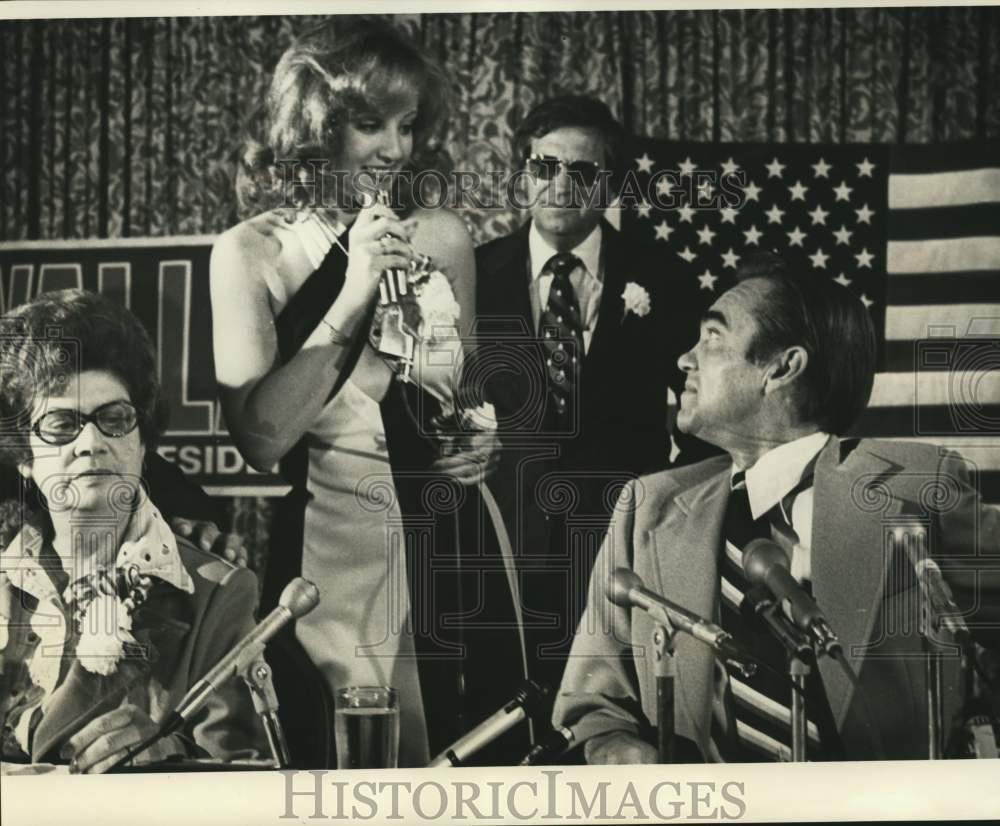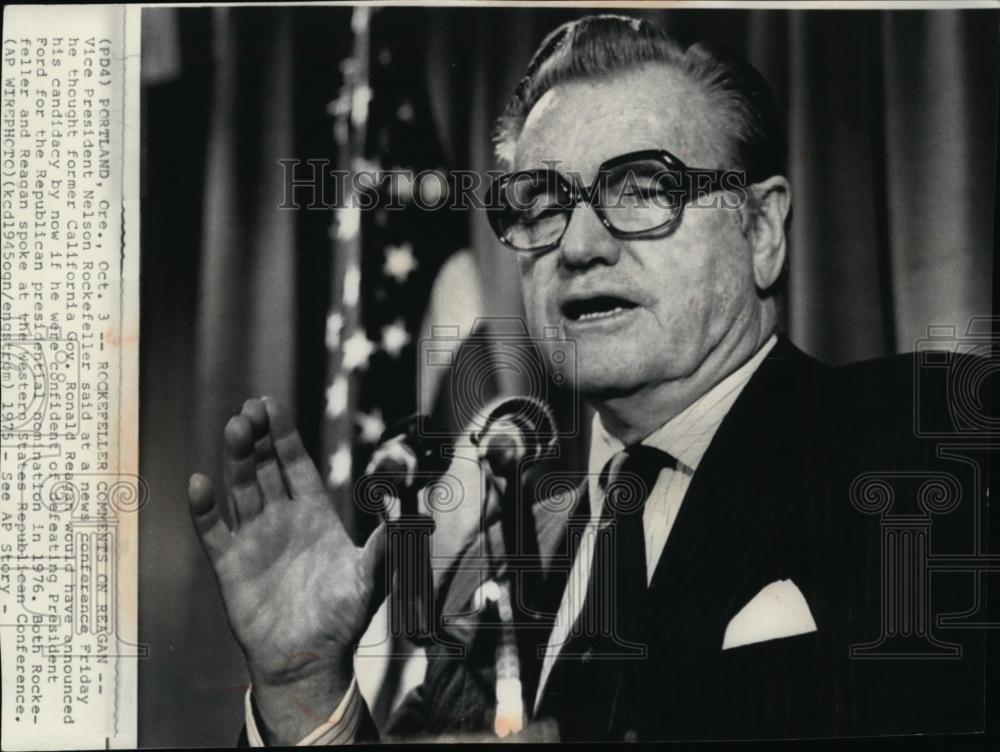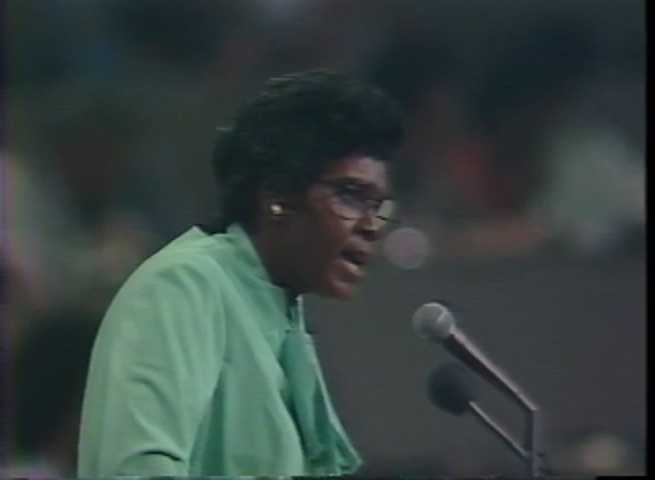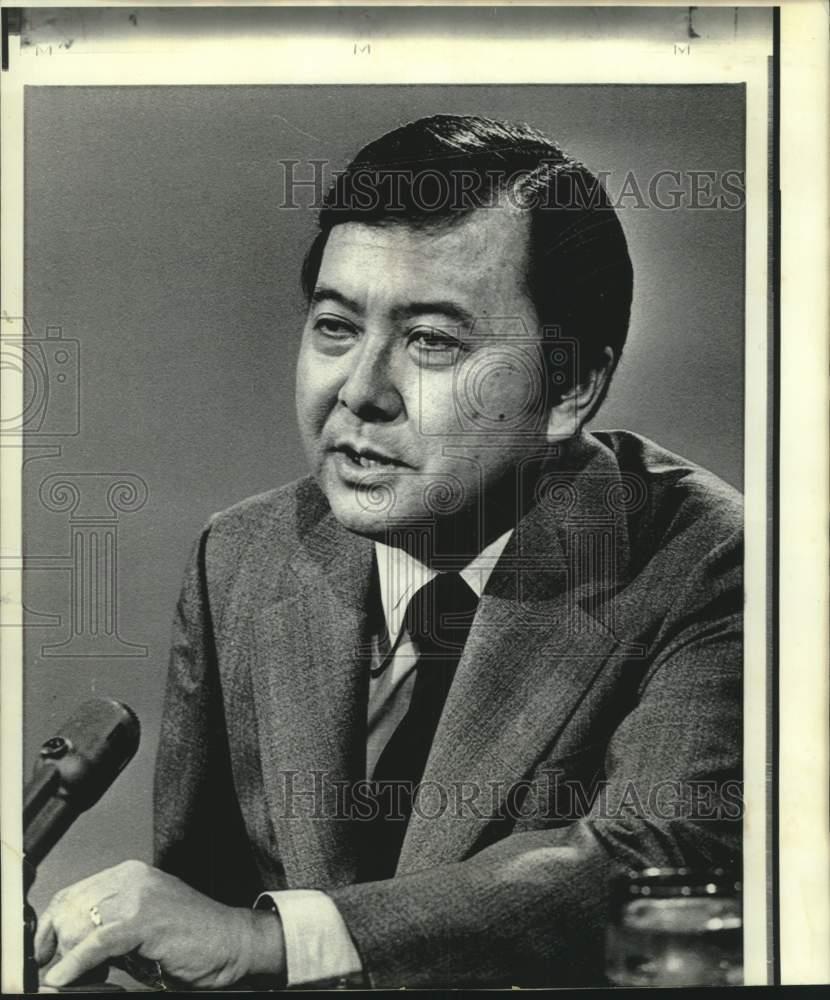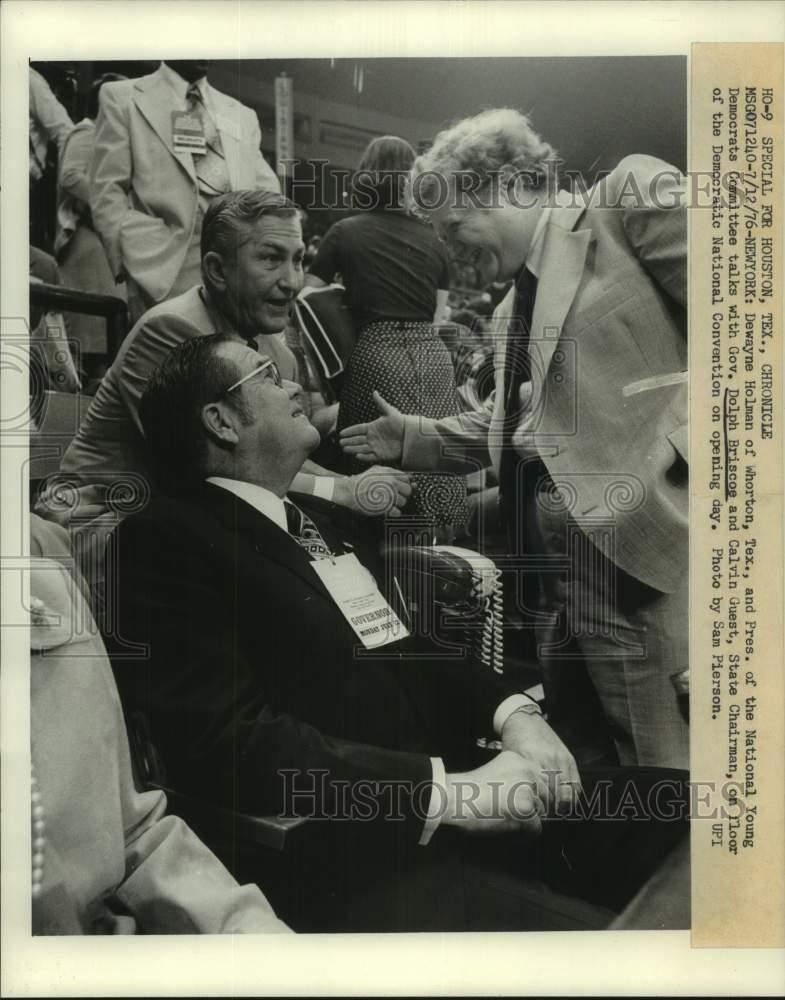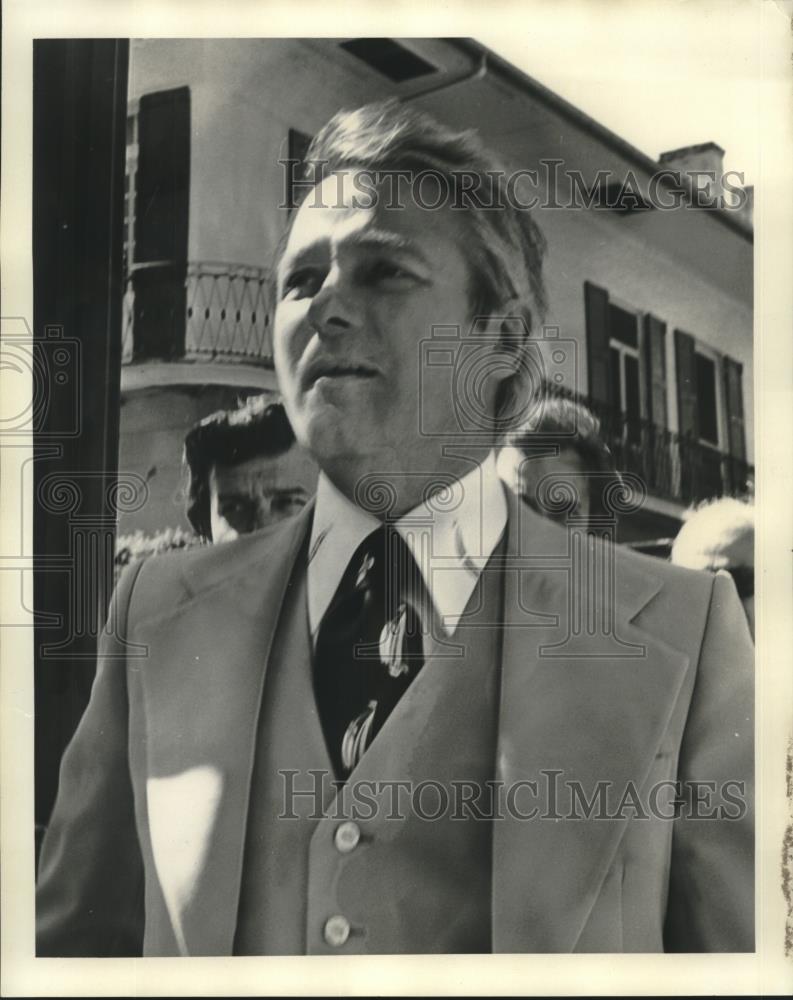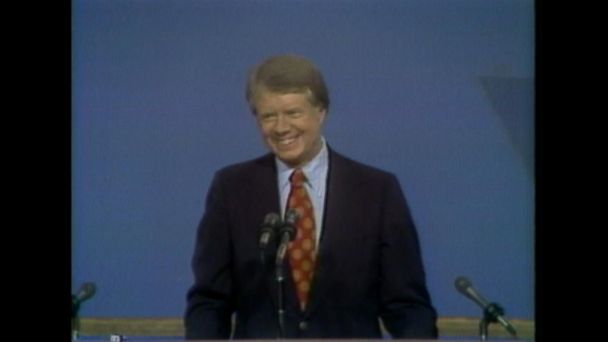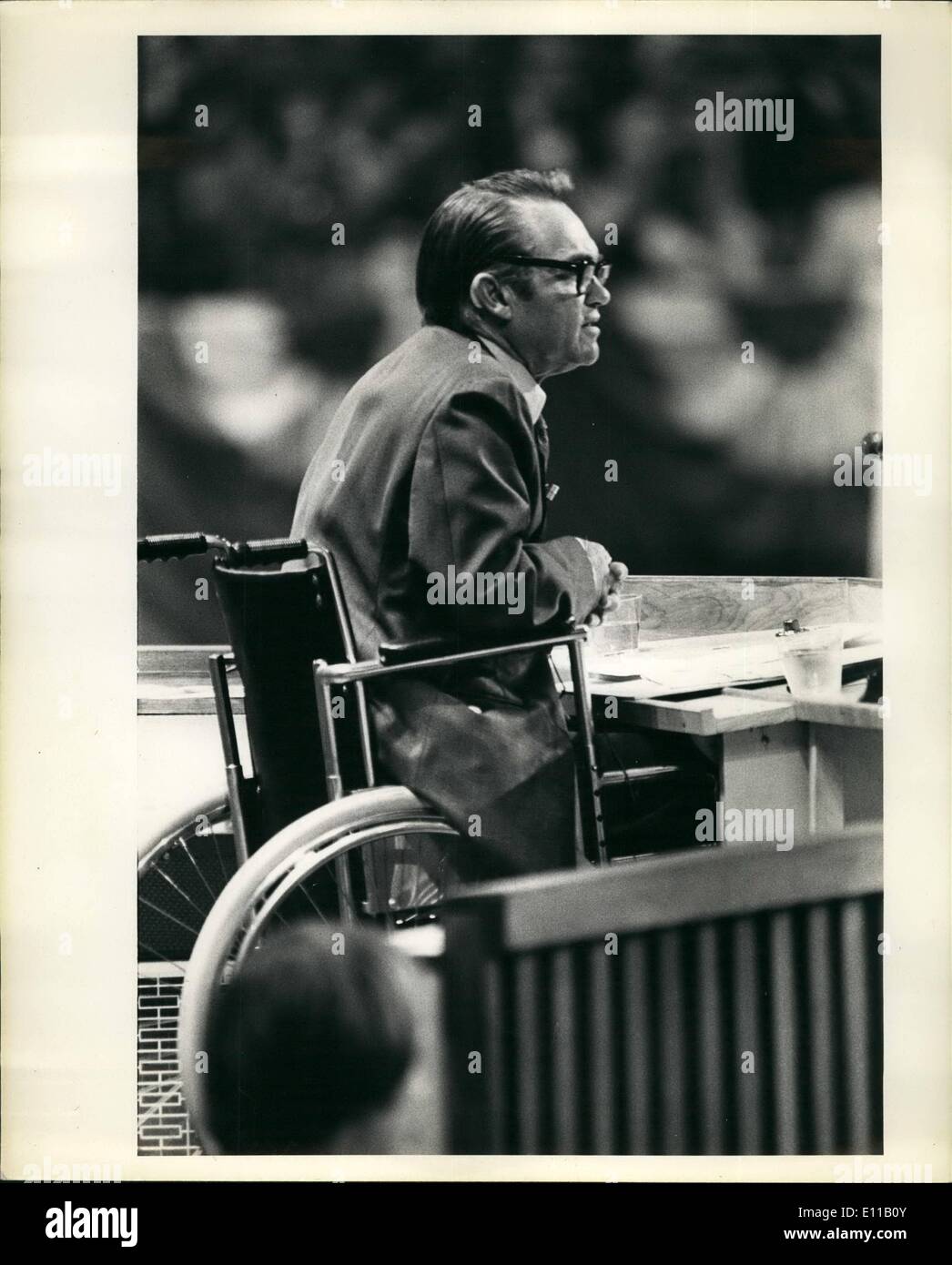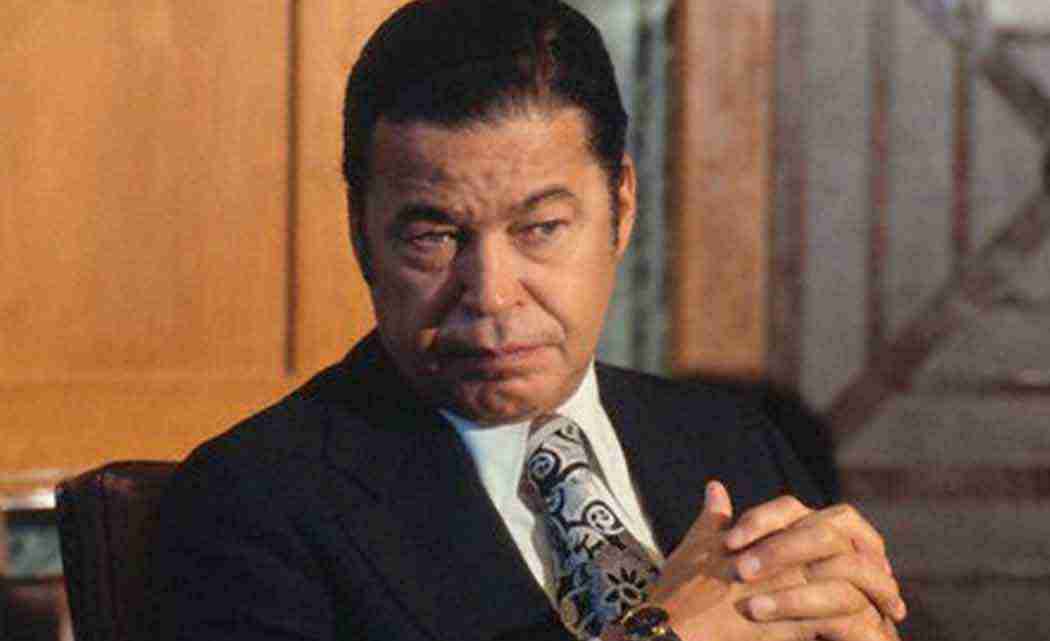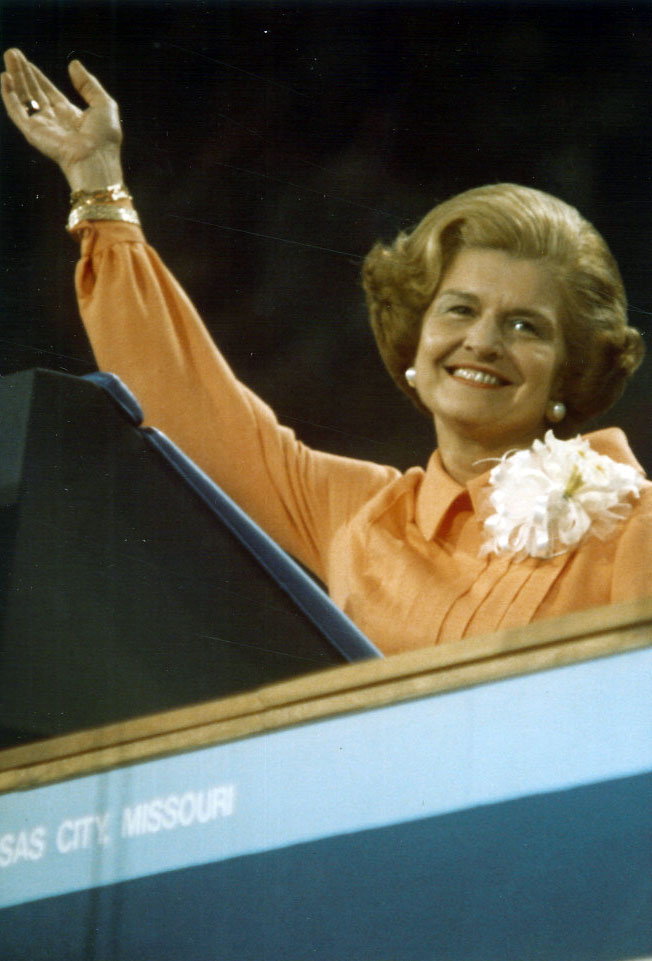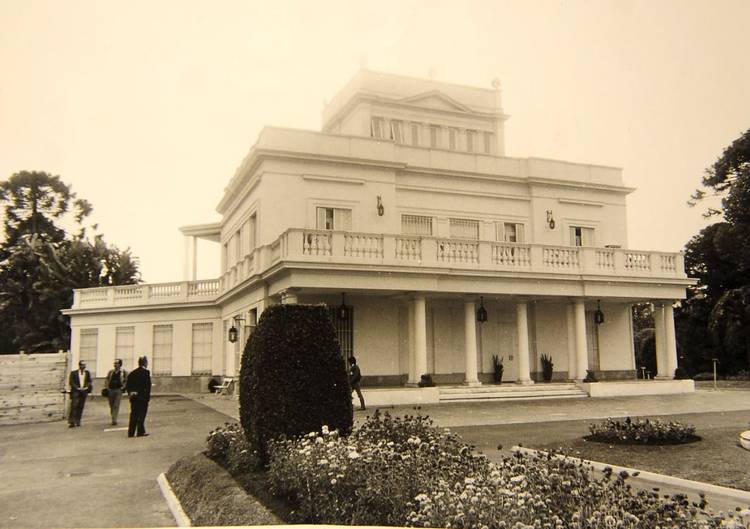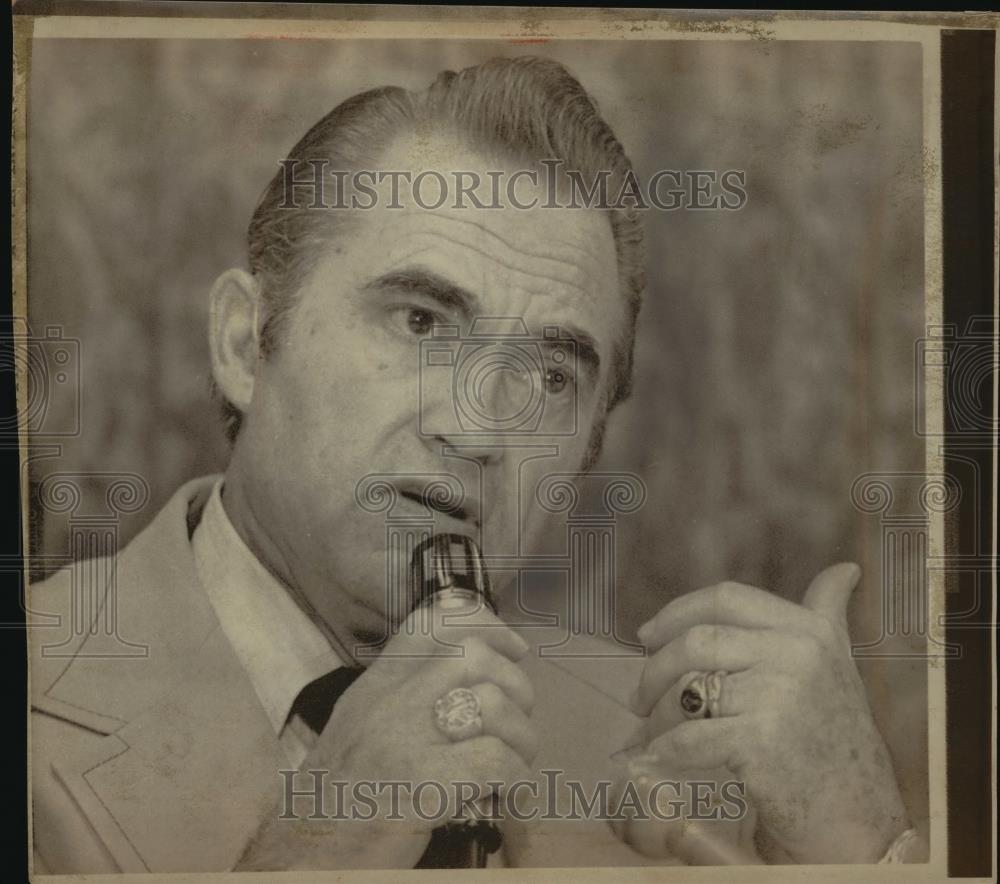Sergeant Foley
Well-known member
BREAKING NEWS ALERT: CHURCH DROPS OUT OF THE 1976 DEMOCRATIC PRESIDENTIAL PRIMARIES; ENDORSES BROWN
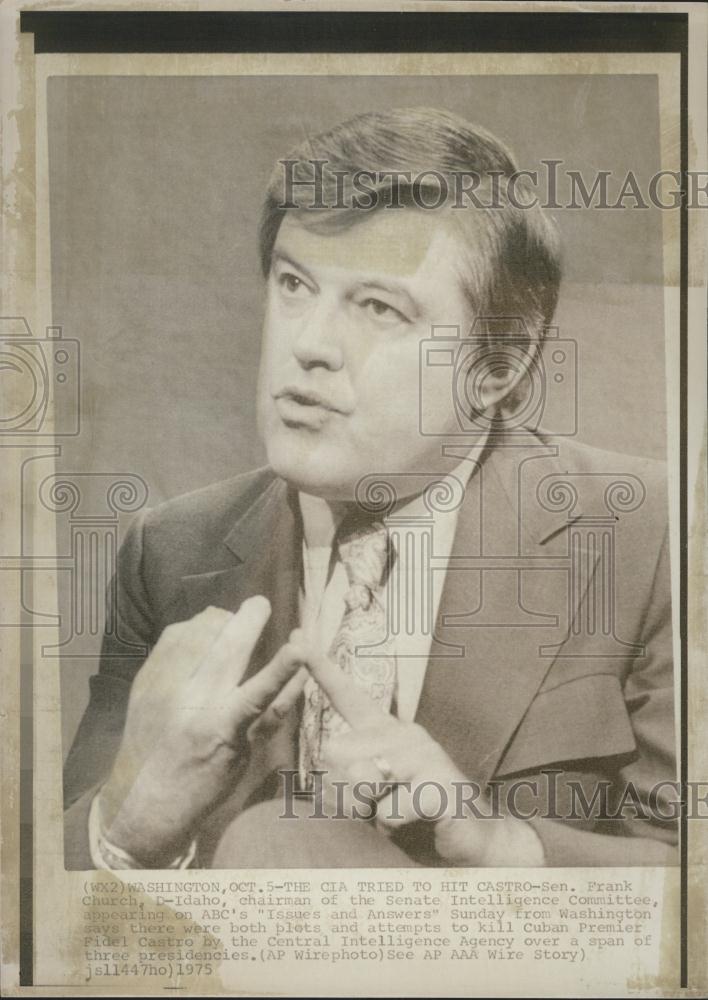
United States Senator Frank Church (D-ID) announcing his withdrawal from the 1976 Democratic Presidential Primaries on ABC's "Issues and Answers".
*Wednesday, May 5, 1976: Less than 24 hours after the May 4th Primary elections, United States Senator Frank Church (D-ID) went on ABC's "Issues and Answers" and confirmed he was dropping out of the 1976 Democratic Presidential primaries effective immediately and will be endorsing California Governor Jerry Brown (D). "At this point in time, my campaign for President no longer has the strength to continue and after consulting with my staff, I have decided that this campaign will be permanently suspended and I plan on endorsing Governor Edmund G. Brown, Jr., of the great state of California to become the Democratic Party's nominee for President in 1976."
JORDAN: "I'LL BE DELIVERING KEYNOTE ADDRESS AT DNC CONVENTION THIS SUMMER."

US Rep. Barbara Jordan (D-TX) addressed questions on whether she'll be addressing the Democratic National Convention this summer in New York City, "I will be speaking at the DNC Convention in New York City this summer" and she also confirmed she'll be giving the Keynote Address on the first night of the convention. While she dodged questions on whether she'll support front-runner Alabama Governor George Wallace (D), Jordan explained "I will support whoever the Democratic nominee for the Presidency is, but we still have lots of primaries left and it isn't over until it's really over."
Gallup Polling Survey (May 9, 1976): Who would you support for the Democratic nomination for President in 1976?
Alabama Governor George C. Wallace, Jr., (D): 43%
California Governor Edmund G. "Jerry" Brown, Jr., (D): 21%
United States Senator Henry M. "Scoop" Jackson (D-WA St): 9%
Undecided: 27%
NOT DROPPING OUT: JACKSON SEES PATH FOR THE NOMINATION DESPITE LONG ODDS
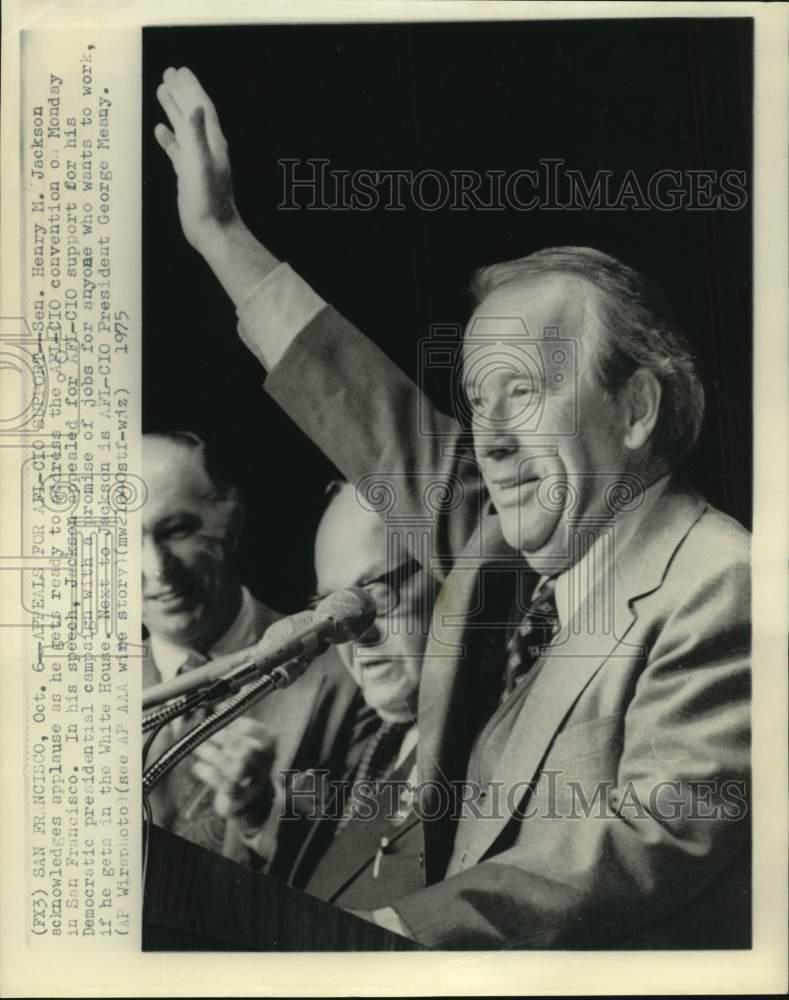
United States Senator Henry M. "Scoop" Jackson (D-WA St) while addressing the ALF-CIO Convention in San Francisco, California.
*Tuesday, May 12, 1976: During an address to the ALF-CIO Convention in San Francisco, United States Senator Henry M. "Scoop" Jackson (D-WA St) said he still has a path for the Democratic presidential nomination despite the odds stacked against him. "I'm not the one who quits things very easily, because nobody's had my long experience of public service and winning multiple elections over the years. I believe this campaign has a path forward with upcoming primaries coming up throughout the end of this month and if there's not enough delegates for anyone to clinch the nomination, this will be decided at the Democratic National Convention in New York City this summer."

United States Senator Frank Church (D-ID) announcing his withdrawal from the 1976 Democratic Presidential Primaries on ABC's "Issues and Answers".
*Wednesday, May 5, 1976: Less than 24 hours after the May 4th Primary elections, United States Senator Frank Church (D-ID) went on ABC's "Issues and Answers" and confirmed he was dropping out of the 1976 Democratic Presidential primaries effective immediately and will be endorsing California Governor Jerry Brown (D). "At this point in time, my campaign for President no longer has the strength to continue and after consulting with my staff, I have decided that this campaign will be permanently suspended and I plan on endorsing Governor Edmund G. Brown, Jr., of the great state of California to become the Democratic Party's nominee for President in 1976."
JORDAN: "I'LL BE DELIVERING KEYNOTE ADDRESS AT DNC CONVENTION THIS SUMMER."
US Rep. Barbara Jordan (D-TX) addressed questions on whether she'll be addressing the Democratic National Convention this summer in New York City, "I will be speaking at the DNC Convention in New York City this summer" and she also confirmed she'll be giving the Keynote Address on the first night of the convention. While she dodged questions on whether she'll support front-runner Alabama Governor George Wallace (D), Jordan explained "I will support whoever the Democratic nominee for the Presidency is, but we still have lots of primaries left and it isn't over until it's really over."
Gallup Polling Survey (May 9, 1976): Who would you support for the Democratic nomination for President in 1976?
Alabama Governor George C. Wallace, Jr., (D): 43%
California Governor Edmund G. "Jerry" Brown, Jr., (D): 21%
United States Senator Henry M. "Scoop" Jackson (D-WA St): 9%
Undecided: 27%
NOT DROPPING OUT: JACKSON SEES PATH FOR THE NOMINATION DESPITE LONG ODDS

United States Senator Henry M. "Scoop" Jackson (D-WA St) while addressing the ALF-CIO Convention in San Francisco, California.
*Tuesday, May 12, 1976: During an address to the ALF-CIO Convention in San Francisco, United States Senator Henry M. "Scoop" Jackson (D-WA St) said he still has a path for the Democratic presidential nomination despite the odds stacked against him. "I'm not the one who quits things very easily, because nobody's had my long experience of public service and winning multiple elections over the years. I believe this campaign has a path forward with upcoming primaries coming up throughout the end of this month and if there's not enough delegates for anyone to clinch the nomination, this will be decided at the Democratic National Convention in New York City this summer."
Last edited:

